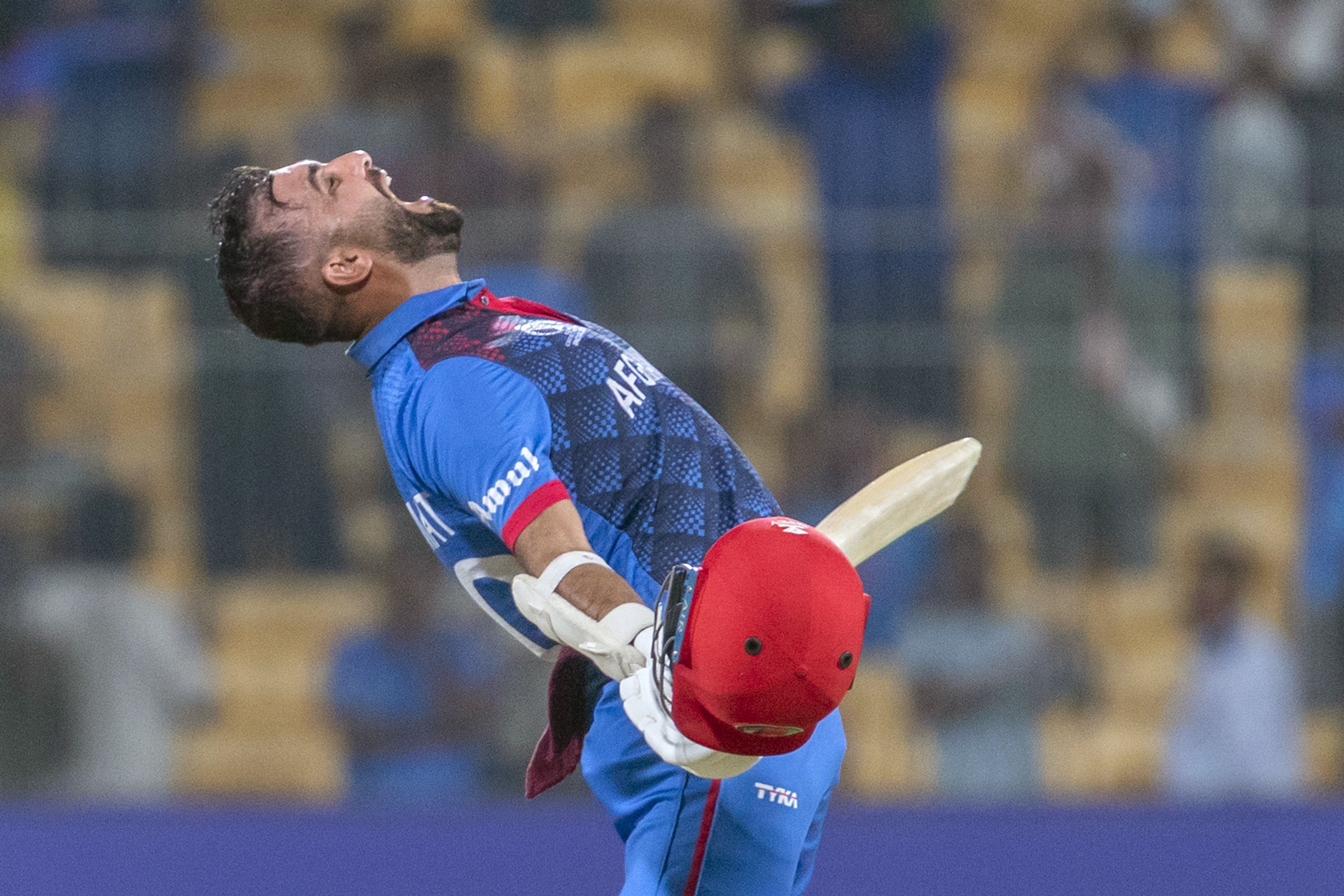The streets of Kabul erupted in joy Monday night as Afghans celebrated their national team’s massive upset victory against Pakistan in the Cricket World Cup. It’s a brief moment of elation amid the crushing crises that have immiserated millions since the US withdrawal.
The stunning eight-wicket win against one of the sport’s most celebrated sides put Afghanistan in a four-way tie for a knockout stage berth. They face an uphill climb for a shot at the trophy, though: The mighty South African and Australian teams are sure to put Afghan bowlers and batters through their paces, and they’ll have to beat both Sri Lanka and the Netherlands as well. If they manage to pull it off, waiting in the knockout stages is thus-far undefeated India, playing at home to roaring crowds.
Intimidating, but cricket is a game that rewards resilience, a trait Afghans have shown they possess in spades over the trials of the last half-century. Many members of the Afghanistan Cricket Board fled the country after the Taliban takeover, and the team has since played home games in the United Arab Emirates and India.
Daily life for those back home teeters on the knife’s edge: The World Food Program is urgently calling for $400 million to keep the country fed through winter as the families that can afford food report spending 91% of their incomes to buy it. Women are shut out of public life so totally that 90% of the victims of recent earthquakes near Herat were women and children, stuck indoors during the day.
That’s just a taste of the pressure the Afghan players will feel to bring a little joy and hope into the darkness when they take on Sri Lanka next week. If this sounds like must-see TV to you,
read this cricket explainer for Americans, brew up some coffee, and we’ll see you at 4:30 a.m. on Monday.
